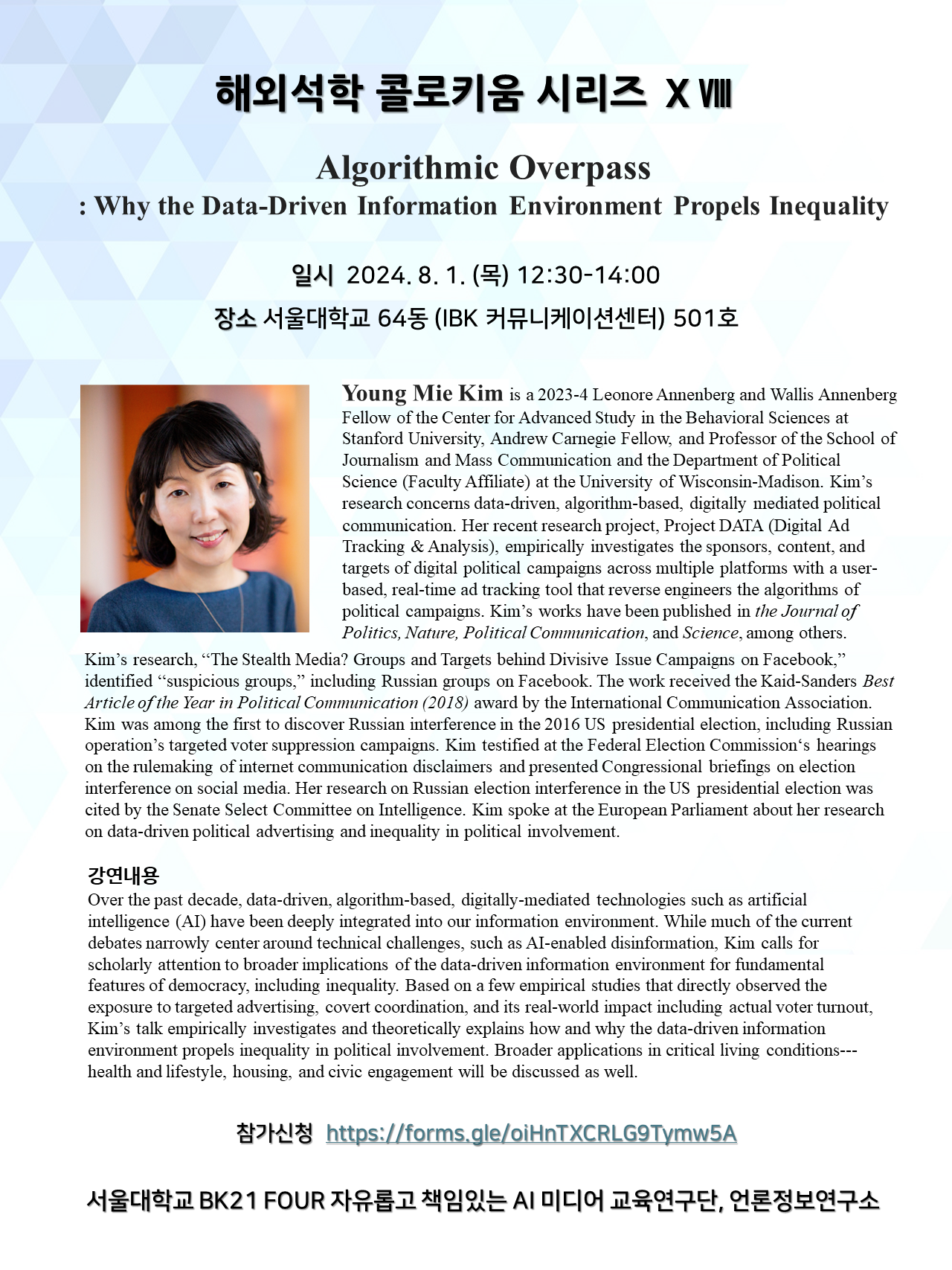

일시: 8월 1일 (목) 12:30 - 14:00
장소: 서울대학교 64동 (IBK커뮤니케이션센터) 501호
강연자: Young Mie Kim (김영미 교수님)
제목: Algorithmic Overpass: Why the Data-Driven Information Environment Propels Inequality
내용: Over the past decade, data-driven, algorithm-based, digitally-mediated technologies such as artificial intelligence (AI) have been deeply integrated into our information environment. While much of the current debates narrowly center around technical challenges, such as AI-enabled disinformation, Kim calls for scholarly attention to broader implications of the data-driven information environment for fundamental features of democracy, including inequality. Based on a few empirical studies that directly observed the exposure to targeted advertising, covert coordination, and its real-world impact including actual voter turnout, Kim’s talk empirically investigates and theoretically explains how and why the data-driven information environment propels inequality in political involvement. Broader applications in critical living conditions---health and lifestyle, housing, and civic engagement will be discussed as well.
강연자 소개: Young Mie Kim is a 2023-4 Leonore Annenberg and Wallis Annenberg Fellow of the Center for Advanced Study in the Behavioral Sciences at Stanford University, Andrew Carnegie Fellow, and Professor of the School of Journalism and Mass Communication and the Department of Political Science (Faculty Affiliate) at the University of Wisconsin-Madison. Kim’s research concerns data-driven, algorithm-based, digitally mediated political communication. Her recent research project, Project DATA (Digital Ad Tracking & Analysis), empirically investigates the sponsors, content, and targets of digital political campaigns across multiple platforms with a user-based, real-time ad tracking tool that reverse engineers the algorithms of political campaigns. Kim’s works have been published in the Journal of Politics, Nature, Political Communication, and Science, among others. Kim’s research, “The Stealth Media? Groups and Targets behind Divisive Issue Campaigns on Facebook,” identified “suspicious groups,” including Russian groups on Facebook. The work received the Kaid-Sanders Best Article of the Year in Political Communication (2018) award by the International Communication Association. Kim was among the first to discover Russian interference in the 2016 US presidential election, including Russian operation’s targeted voter suppression campaigns. Kim testified at the Federal Election Commission‘s hearings on the rulemaking of internet communication disclaimers and presented Congressional briefings on election interference on social media. Her research on Russian election interference in the US presidential election was cited by the Senate Select Committee on Intelligence. Kim spoke at the European Parliament about her research on data-driven political advertising and inequality in political involvement.